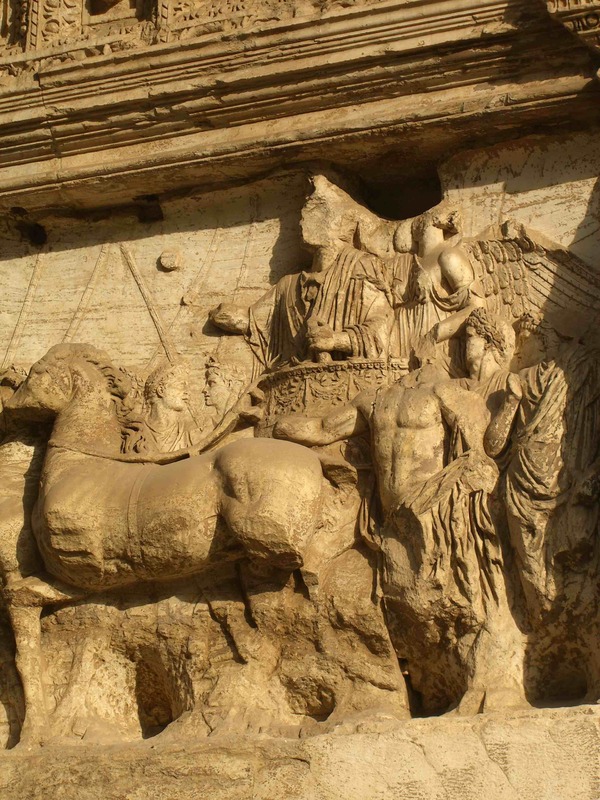Titus

Arch for Titus, image of the Emperor Titus in his Triumphal Procession from an interior relief panel
The Flavian Dynasty was established in 69 CE by Vespasian, a Roman general who seized power during the chaotic "Year of Four Emperors" that followed the death of Nero (the last emperor of the Julio-Claudian Dynasty). While securing power, Vespasian left his son Titus in control of the Roman army in Judaea. There, under Titus’ command, Roman forces captured Jerusalem and famously destroyed the Second Temple. The Senate awarded Vespasian and Titus a triumphal procession, staged in 71 CE, to honor their success in suppressing the Jewish rebellion. Upon Vespasian's death in 79 CE, Titus peacefully ascended as emperor. His reign was short but eventful. Mount Vesuvius erupted and buried Pompeii and other cities around the Bay of Naples in 79 CE. The next year, Titus celebrated the opening of the Colosseum (the Flavian Amphitheater), which his family had funded with profits from the Jewish War. Titus died in 81 CE, and the Senate officially recognized his apotheosis.